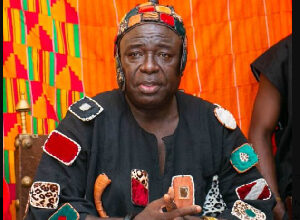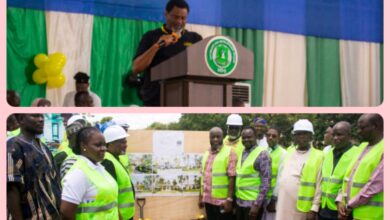Asantehene urges local control of Kumasi BRT for swift implementation as he endorses the project:
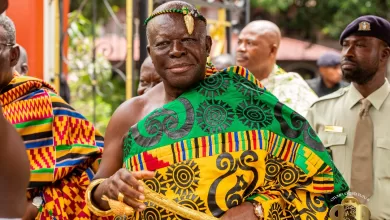
His Majesty, the Asantehene, Otumfuo Osei Tutu II, has given his strong endorsement to the upcoming Bus Rapid Transit (BRT) project in Kumasi, emphasizing the urgent need for its swift implementation and local management to alleviate congestion and stimulate economic growth.
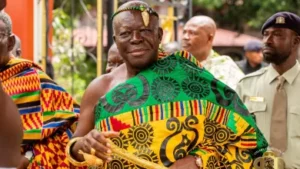
During a recent courtesy call at his palace, attended by representatives from the World Bank, the Ashanti Regional Transport Coordinating Directorate, the KMA Transport Unit, and other key stakeholders, Otumfuo Osei Tutu II underscored the project’s importance to the region. He acknowledged the longstanding relationship between the Ashanti Kingdom and the World Bank, while stressing the need for the BRT project to be effectively managed by local resources.
The Asantehene spoke of Kumasi’s vibrant nature and its crucial role as a commercial hub, highlighting the growing demand for an efficient transportation system. However, he expressed considerable concern over the lengthy planning period for the project, which he noted has been in discussion since 2015.
“The current situation of traffic in Kumasi, where vehicles, buses, and trotros are all competing for space, hinders the city’s economic development and productivity,” Otumfuo stated, stressing the need to address the city’s chaotic traffic situation.
He specifically emphasized the significance of the proposed 28- Kilometer BRT route from Ejisu to Abuakwa, noting that its implementation would dramatically improve the movement of goods and people, and thereby facilitate business in the area. “If we could have that rapid transport, and the movement of goods, passengers and all those things and the ease with which we can do business is something that we have to take a look at seriously,” he explained.
Otumfuo also firmly called for the project’s operational center and project coordinator to be based in Kumasi, stating, “It shouldn’t be running from Accra when we have the project in Kumasi. The project unit should be here and the project coordinator must also be resident here.” He emphasized that local control would ensure better coordination with regional stakeholders and district assemblies.
He further lamented the lost economic and employment opportunities resulting from delays, asserting that the project must be implemented swiftly to realize its full potential for the people of Kumasi.
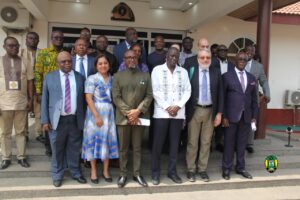
The World Bank’s Vice President for West and Central Africa, Mr. Ousmane Diagana, who was part of the delegation, pledged full support for the project, echoing the shared commitment to improving Kumasi’s transportation infrastructure.

